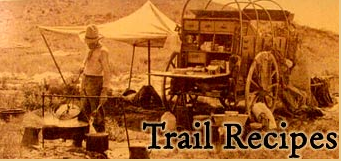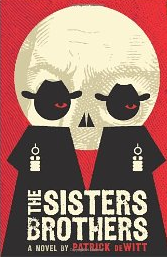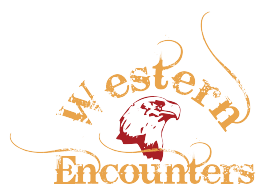|
AdvertisEments |
||
|
||
|
||
|
||
|
||
|
|
||
|
|
||
|
|
||
|
Western
Questions
Corner
What was Richard King’s master plan to staff his Ranch in South Texas ?
In what year did Montana try to get a resolution to preserve the range exclusively for cattlemen?
Australian Cowboy - The Dying Breed By Graham Dean
Sometimes we find ourselves and our Australian pards "two peoples separated by a common language." Australian poets who come our way are invariably asked to define unfamiliar words.
As we discussed this issue with Lariat Laureate runner up Graham Dean, he offered (or we got him to volunteer?) to try to educate his pards across the world about the Australian "cowboy." As eloquent in his prose as he is in his poetry, we'll let his words describe his story:
"This story is not a product of some long-winded researcher and does not claim to be full of totally undeniable facts. It is the life on the land as seen by the writer and may well be refuted in some areas. I believe I have portrayed the generally accepted model of the Cowboy in Australia in an attempt to allow those in the U.S.A. to see there is a true comparison between our two countries and that through our legends, stories and poetry we all have a need and possibly a duty to preserve our respective histories.
As the soft flush of the dawn creeps slowly over the Great Dividing Range in Queensland to Australia's north, the Kookaburra laughs. When it's subtle light cast's shadows from some lonely Coolibah tree in the Northern Territory, or the colours of dawn spread over the waters of Lake Argyle in Western Australia there is one thing that remains constant.
Dawn is the time of the Aussie Cowboy, but let us be more precise. Dawn is the time of the Jackaroo, Jillaroo and Ringer as these are the names cowboys go by in Australia. The Jackaroo/ Jillaroo is really the apprentice stockman of the Outback, most likely from a rural background but often as green as rawhide from the cities, but all filled with an undying love of stock work and the Australian Outback.
Dawn to dusk is the normal workday and for the pay they receive, very few people would do the work unless they had a love affair with the land. The Australian stockman or Ringer is and forever will be a part of the folk law of the country, but as times have changed so to has the stockman.
In the dawn of the 1800's and even up to the 1900's, fences were rare and properties were measured in hundreds or even thousands of square miles. Boundaries were many days travel from the homestead and the stockmen would camp out, sometimes in permanent out buildings and sometimes just under the stars. Many of the original stockmen were the indigenous Australian Aboriginal whose tribes inhabited the land. Today they are still praised for their stock work, although at the time many were paid only in flour, salt and other commodities. In these times whole camps of the native Australian would have been supported by the property. As with many industries, equality of wages and an acceptance of people and their rights have brought a cessation of this and many other practices of the past. Today the indigenous peoples are landholders in their own rite and operate many successful properties around the country.
As in America, in earlier times cattle in Australia would be driven along what eventually became dedicated stock routes, and with Australia's' never ending search for water, these stock routes were designed and destined to follow available waters, much of which is pumped to the surface through artesian bores and windmills which have come to be a trademark of the Outback.
The cattle would be driven to markets many thousand of miles away over a period of months and sometimes years. The stockmen who attended these cattle became known as Drovers. The droving days of our past are the days of romance portrayed in much of our classical poetry. Each year in the tiny township of Camooweal to Queenslands far Northwest a Drovers reunion is held to commemorate these intrepid travelers. Camooweal is in the process of constructing a Drovers Hall of Fame to do honour to the men and women of the Australian west.
Many are the stories of hardship and triumph, battles with the elements and the triumphs of our early Australians. One such tale is of a father and son who went on the road with 1200 horses from Camooweal to Sydney, about 1800 miles stopping early in the day to hobble each and everyone of the horses and taking about 18 months to complete the journey. Other stories of the droving days abound, such as herds of cattle swelling as they picked up strays from previous herds or diminishing as they lost their cattle along the way.
In those days of romance and hardship many a tale was turned into poetry and song by the often-illiterate drovers, and with their passing many of these treasures have been lost to us.
Oh I dream of the days, that are lost to me,
Of the days when the Drovers rode.
Never sure of the way of their destiny
Never sure of the weight of their load.
They would travel the waste of the desert side,
Where the water was fickle to find.
They would battle the floods and with gallant pride,
Lay their cares and their troubles behind.
Now as the new Dawn of equal opportunity and equal pay has started to take hold of the countryside the Drover is usurped by the triple road train. This is a semi trailer with three trailers in tow. Quite often these are a double decked affair carrying up to 300 beasts at a time. In the past many meat works dotted the country but as health regulations and restrictions have become more and more strict the majority of our meat works have centered on port cities. The modern day Drover has become a skilled driver of the road train.
On the Station Property the life of stockman is changing at an ever-increasing pace as motorcycles replace the horse and the helicopter reduces the need for large crews during the muster. The helicopter will run more cattle into the yards in one day than the old mustering crews would have done in a week.
And my dreams drift back over the station,
Where my life was a constant array
Of those mornings arising in darkness.
And darkness would end every day.
And the cattle we fought hard to muster,
Would be locked in the yards for the night.
And we'd watch the night clouds drift on over,
And we'd talk by the campfires dull light.
Daylight, and the start of a new day brings those of our stockman still on the land towards the ever-increasing pressures of the modern world. Some still hold the belief that it is better to take time with the cattle, and maintain that working with horses keeps the weight on and the stress levels
down. Others praise the benefits that come with decreased costs of low labour and the helicopter whilst others take the middle ground and muster with motorcycles.
Whatever the reasons Australian stockmen although not a dying breed are certainly on the endangered list. Employment opportunities are becoming fewer and the skills needed are far greater than in the past. Where in years gone by young men would leave school and go West to learn on the job, they now are schooled well before arriving at a property and these skill are put to use with the new efficiency of our modern age.
But the 'real man', our Man From Snowy River, the stockman afraid of nothing and no one is still out there on the ranges and the dry salt flats and clay pans of Australia's inland. He is sixteen years of age maybe going on to forty, he wears and Akubra hat and generally a big one. At his side his belt hangs low with his tools of trade, a sharp folding penknife and possibly his fencing pliers. His leisure
hours are few but generally filled with rodeo and rum & coke and talk of cattle and horses. He is still a legend.
And we'd sleep the dead sleep of exhaustion
For our days had been hard and been long.
And those days of my youth I remember,
Are the ones that have made me so strong.
Yes I dream of the days, that are lost to me,
Of the days when the old Drovers told
Of a life where they battled with hardship,
But a life full of magic untold.
Do I paint a picture of the Australian stockman that is so different to the American Cowboy? I think not!
In Australia's year of Federation (2001) we celebrated one hundred years of a combined Australia.
Our history dates back to 1770 when James Cook discovered the East Coast of our land. We grew as a jigsaw of separate colonies under British rule. Our land was settled by pioneers' who struggled with hardships, and battled with Nature. We still, as a nation, fight Nature and her countless furies. Even now the people on the land fight a centralised Government for recognition. Our country services fall well below those services offered to our city cousins. We have memories of a much healthier and romantic past.
Are we so different?
As the evening light dims on an ochre landscape the Jackaroo, Jillaroo, Ringer, stockman, Cowboy, Buckaroo and all of their compatriots, bed down for the night, all knowing in their hearts there is only one life at this present moment in time they wish to lead, that is, the life on the land.
Graham Dean: Born Brisbane Queensland Aust. 1951-- smack dab in the middle of the baby boomer era.
Credits and accolades
Co-author of two childrens poetry books
Working now on third childrens book
Author of Beneath the Southern Cross (a small poetry book)
Co-authored Gone Wookatook with Louise ( self published book of Bush Poetry)
First started to write poetry at about the age of ten -- Since then- I have always been interested in the wide open spaces of Australia and in the seventies followed those immortal words "Go West Young Man" worked on Cattle stations and more recently in the construction industry. Now- Louise and I have semi retired to a small country town named Prairie (Population 38) in the North West of Queensland, where we have set up a business called Bush Wookatook based on poetry and Art and servicing the tourist.We are also in demand for poetry recitals and workshops and involved in the organisation of festivals, either as comperes, judges or organisers. Sounds like a lot of self promoting guff but it does keep us busy. We would really like to return to America at some time in the future as time and finances permit and would welcome any Cowboy Poets who may be travelling past. We would love to show y'all how a real cup of tea is made in a "billy" over an open fire
You can email Graham for more information on his stories and poetry.

Home <> Western Gallery <> Western Dictionary <> Cowboys <> Reining
Western Store <>Western Writers <> Western Stars <> Western TV <> Country Music <> Guns <> Western Vacations



